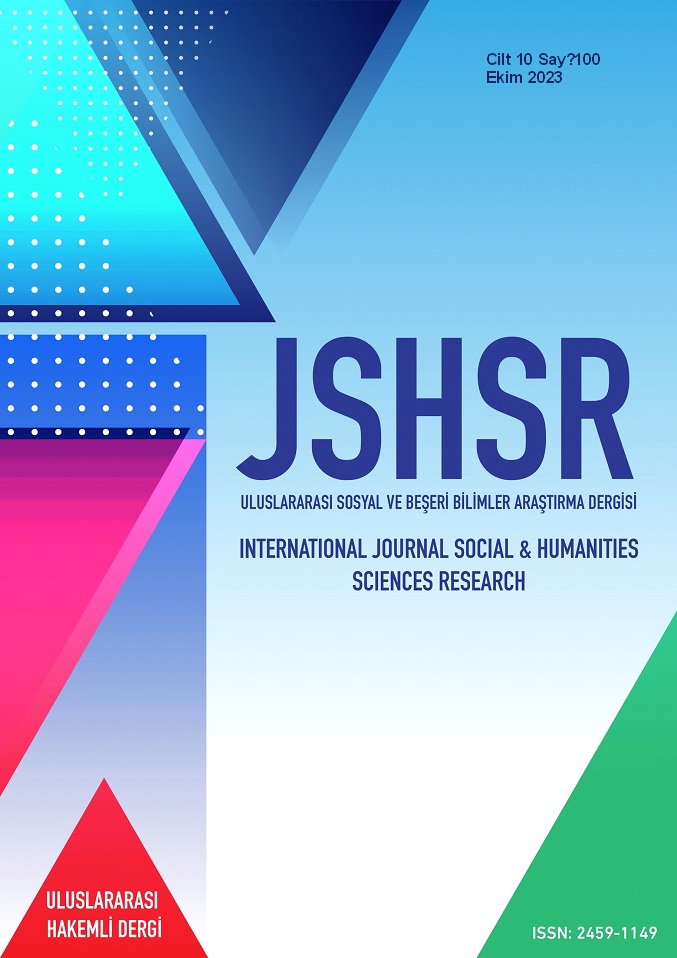Bank Customers And The Use of Open Banking: Have We Introduced It Yet?
DOI:
https://doi.org/10.5281/zenodo.10045773Anahtar Kelimeler:
Banking, Open Banking, Digital Banking, FinTechÖzet
Developments in technology are closely followed by financial sector actors, and the banking sector is one of the leading actors among these actors. The banking sector closely follows technological innovations and integrates them into banking systems in order to provide better service to customers and increase financial inclusion. Open banking is one of the innovations made available to customers as a result of technological innovation in the banking sector. Open banking, which refers to the sharing of customer information with the consent of the customer, enables customers to access the products and services of all banks on a single platform wherever there is internet access. Thanks to this service provided in cooperation with FinTek and the banking sector, it is expected that customers will be able to access their account and card information from a single platform, make banking transactions faster, make interbank comparisons and make financial decisions more rationally. On the other hand, open banking offers customers advantages such as transparency, product/price competition and innovation.
Although open banking is a very new concept for the Turkish banking sector, it is considered as the future of banking. It is stated that the biggest obstacle to the acceptance of technological innovations is the attitude of customers towards innovation. Therefore, this study aims to measure the level of knowledge and attitudes of bank customers toward open banking. For this purpose, 574 customers of banks offering open banking services through mobile banking applications were surveyed through digital channels using a simple random sampling method. The answers given by the participants to the survey statements were subjected to frequency analysis with the help of statistical software. As a result of this analysis, it was concluded that open banking is not sufficiently known by bank customers, open banking is not used by bank customers and a significant portion of them have negative attitudes toward open banking.
Referanslar
Akın, F. (2020). Dijital dönüşümün bankacılık sektörü üzerindeki etkileri. Balkan ve Yakın Doğu Sosyal Bilimler Dergisi, 6(2), 15-27.
Araluze, G. B. (2020). Adoption of open banking in spain do spanish customers need open banking? Confident Future November, 2020.
Aksoy, B. And Bilgel, D. (2019). Finansal teknoloji şirketleri ve geleceğin bankacılığı: açık bankacılık. Avrupa Bilim ve Teknoloji Dergisi, (17), 1097-1105. doi:10.31590/ejosat.646196
Cerit, M. (2019). Dünyada ve Türkiye’de açık bankacılık: Bankacılığın geleceği, Fintech İstanbul, Ekim 2019.
Chappelow, J. (2020), Finansal teknoloji ve otomatik yatırım, Investopedia, 27, Agust.
FinTech İstanbul (2019), Dünyada ve Türkiye’de açık bankacılık: Bankacılığın geleceği. Rumi Matbaacılık.
Gozman, D., Hedman, J. and Olsen, K. S. (2018). Open banking: Emergent roles, risks & opportunities. Research Papers. 183.
Göktepe, S. (2018). Fintech startups in turkey-how will FinTech startups change tradtional approval and lending processes of banks in Turkish financial markets. [Unpublished Master's Thesis]. Bahçeşehir Üniversity.
Hsieh, K. (2019). Open banking: A case study for open API economy. https://nccur.lib.nccu.edu.tw/ bitstream/140.119/124377/1
McKinsey. (2017). Data sharing and open banking. https://www.mckinsey.com/industries/financial-services/our-insights/data-sharing-and-open-banking.
Mounaim, C., Rijks, T. and Shikko, N. (2016). PSD2: The digital transformation accelerator for banks. Journal of Payments Strategy & Systems. 10(1), 13-27.
Moysan, Y and Margaux, R. (2019). Open banking: Towards platform and modular banking. Journal of Digital Banking, 4,131-143.
Niemela, M. (2019). Bank and Fintech competitive dynamics and the perceived value of partnerships in an open banking market environment. [Unpublished Master's Thesis]. University of Oulu.
Prıce Water House Coopers (PWC) 2019. Strategy&, the ımminent arrival of the age of open banking, A shift to the platform model business in banking: https://www.strategyand.pwc.com/ jp/ja/publications/periodical/strategyand-foresight-16/sf16- 02e.pdf,
Sevim, H., and Gökoğlan, K. (2023). A fıeld study on open bankıng system. VII-ınternatıonal europen conference. Frankfurt: By ıksad publishing house. 1-18.
Sezal, L. (2021). Dünyada ve Türkiye’de açık bankacılık uygulamaları ve yasal düzenlemeler. Journal of Social and Humanities Sciences Research, 8(71), 1512-1525. http://dx.doi.org/10.26450/ jshsr.2327
Sıvathanu, B. (2019). An empirical study on the intention to use open banking in India. Information Resources Management Journal (IRMJ), 32(3), 27-47. doi: 10.4018/ IRMJ 32(3), 27-47.
Şahan, D. (2017). Platform ekonomilerinin bir uygulaması olan finansal teknoloji şirketleri bankacılık sektörünü nasıl değiştirecek. [Master's Thesis] Bahçeşehir Üniversity.
Şahin, B. and Cantürk, B. (2020). Türkiye'deki hukuki altyapı ve ödeme hizmetleri yönergesi 2 bağlamında API teknolojisi ve açık bankacılık. Maliye ve finans yazıları, 114, 149-158.
Vives, X. (2017). The Impact of Fintech in Banking. https://european-economy.eu/2017-2/the-impact-of-fintech-on-banking/
Zachariadis, M. and Özcan, P. (2017). The API economy and digital transformation in financial services: the case of open banking. SWIFT Institute.
İndir
Yayınlanmış
Nasıl Atıf Yapılır
Sayı
Bölüm
Lisans
Telif Hakkı (c) 2023 International Journal of Social and Humanities Sciences Research (JSHSR)

Bu çalışma Creative Commons Attribution 4.0 International License ile lisanslanmıştır.


